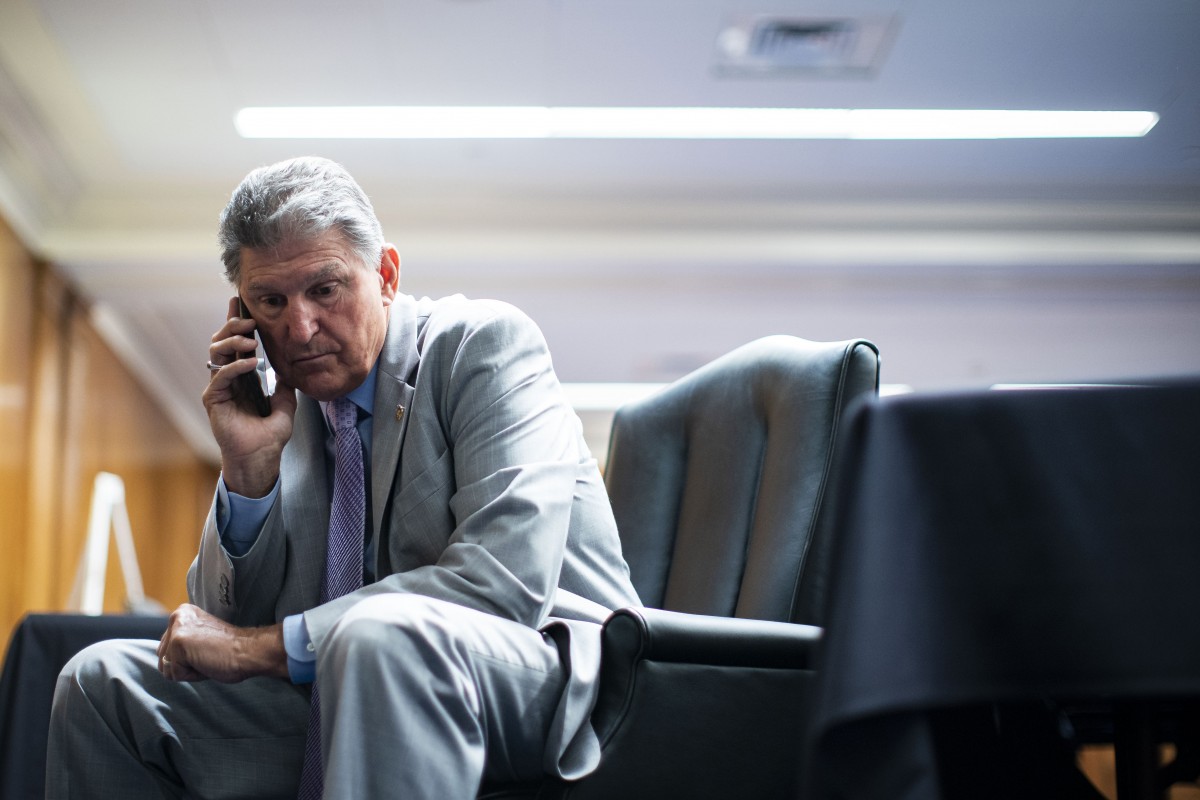At Eastern Kentucky University in Richmond, Kentucky, Martin, a junior who does not wish to be identified by last name, had an initial assessment done with the on-campus counseling center in the spring of 2019. That was before quarantine began, before students were shuffled off campus to slow the spread of COVID-19 and before the pandemic exacerbated mental health challenges for students.
Shortly after his assessment, the COVID-19 pandemic hit eastern Kentucky, and Martin said the center never returned any of his emails regarding his appointments with them.
“It felt as though they had dropped me,” Martin said. “I didn’t even know when they started doing virtual consultations because it felt like I had just fallen through the cracks.”
Across Appalachian college campuses, access to mental health services – or the lack thereof – is an issues that’s been on the forefront of students’ minds as the pandemic separated many from their close friends and family members. Social distancing and the change from in-person classes and student activities to online platforms brought unique challenges to the lives of students at Eastern Kentucky University, and as a result, an increased number of students utilizing the university Counseling Center, according to EKU officials.
“The number of students seeking services at the EKU Counseling Center increased by 58 percent from Spring 2020 to Fall 2020,” the center said in an email statement.
EKU’s Counseling Center has offered one-on-one counseling, group therapy, workshops and other services to students since 1992. Since the beginning of the pandemic last year, it has moved to a completely online format, with virtual one-on-one sessions available by appointment and a wide selection of workshops and group therapy events available to the university community.
The “Feel Better Fast” workshop is an example of a university sponsored resource that has expanded the number of sessions available due to the pandemic. “Feel Better Fast” is a psychoeducational workshop series sponsored by the Counseling Center that helps participants cope with stress and other emotions through mindfulness and meditation strategies. While it was previously an in-person event held weekly, it is now being held four times per week as a virtual drop in session.

This semester, the Counseling Center also sponsored a support group for students diagnosed with COVID-19, which allows them to connect with one another and cope with the feelings of stress that come with the diagnosis and subsequent quarantine.
The center has also extended the hours in which crisis services are available, including a hotline that students can call for support outside of normal service hours, such as weekends or when the university is closed. The aim of the hotline is to connect students to already existing services at the university in a wider time range and also provides follow up calls during normal business hours.
With a significantly larger number of students utilizing the services, the counseling program at EKU has had to balance the students’ needs with a limited number of staff – nine licensed mental health professionals and a full time administrative assistant at a university of nearly 13,000 students. In a written statement, the Counseling Center said it has enough staff and resources to serve the number of EKU students seeking assistance, but some students, like Martin, feel forgotten.
The Student Experience
Martin began the process of seeking one-on-one therapy again when students returned to campus in August for the fall semester, but he was unable to schedule further appointments. He began seeing a counselor at the center weekly again in March of 2021.
Much of the help that students needed previously came from the one-on-one in-person therapy that was offered in the counseling center. While Martin still seeks those services on campus, he says he was told in his last meeting that the center was unable to schedule any more regular 30-minute appointments with him due to an expected uptick in students seeking therapy during final weeks of the semester.
Aside from Martin, several students anecdotally shared the feeling of the lack of services available on campus as a result of the pandemic.
“They really probably don’t have the resources or staff size to serve their students,” said Anne, a sophomore who did not wish to be identified by last name.
Anne said the Counseling Center has also not been able to give her the time that she needed in the past few year, turning her away more than once due to booked appointments.
Anne did attend a group therapy session virtually this semester, but was not satisfied with the quality of counseling she was given in that setting. She said the person leading the group session was “not very good at relating.”
“I’ve gone to counseling over trauma that I’ve experienced during college, I’ve gone to counseling for my medical condition, and they’ve very rarely offered anything of substance. It’s kind of the quality of medical advice that you’d get off WebMD,” Anne said.
Other students who have recently sought counseling have enjoyed the online format more than in-person. Emily Burcham, a sophomore art education major, has utilized counseling services both before and during the pandemic.
“They’re really prompt. Every time I’ve called, someone picked up the phone. It’s really nice,” Burcham said.
Burcham first went to a “Feel Better Fast” workshop to cope with stress and anxiety but has now been seeking one-on-one therapy from the center. She feels that the online format has made the services offered more available to her even though she also enjoyed attending the in-person support groups that were offered before the pandemic.
“When you’re going to some place where you open yourself up so much and feel vulnerable, to me it’s easier with a limited number of people,” Burcham said.
A Culture of Shame
The issue of mental health availability in Appalachia, not just to students but to individuals everywhere during the pandemic, has much to do with the culture of the region.
“Each culture sort of creates its own psychology….and if you’re raised in that, that shapes your psychology,” said Jodi Treadway, an adjunct professor of psychology at EKU. Treadway based her doctoral dissertation research in Appalachia.
Appalachian culture as a psychology could explain many of the reasons that mental health isn’t accessible to many students on the Richmond campus, and why many students do not try to seek it out, Treadway said.
According to the American Psychological Association, Appalachia has a suicide rate that is 17 percent higher than the national, and residents in Appalachia’s rural counties are 21 percent more likely to die by suicide than those living in the region’s large metro counties. The number of mental healthcare professionals in Appalachia per 100,000 residents, though, was 35 percent lower than the national average.
In the southern (Mississippi, Alabama, Georgia and South Carolina) and north central (West Virginia and part of Ohio) subregions of Appalachia, access is even more limited with 50 percent fewer mental healthcare professionals than the national average. Distance that would need to be travelled to access these mental health facilities may be one reason mental illness goes untreated, according to a study conducted by the APA.
Psychologically speaking, the barriers students may feel can come from the environment they were raised in, Treadway explained. They experience a phenomenon called collectivism, which the American Psychological Association defines as a social or cultural tradition, ideology, or personal outlook that emphasizes the unity of the group or community rather than each person’s individuality.
According to the APA Dictionary of Psychology, most Asian, African and South American societies tend to put more value on collectivism than do Western societies, insofar as they stress cooperation, communalism, constructive interdependence, and conformity to cultural roles. But in the U.S., culture is more centered on individualism, or a social or cultural tradition, ideology, or personal outlook that emphasizes the individual and his or her rights, independence, and relationships with other individuals. Treadway’s research, however, shows the experience for Appalachians is different than much of the rest of the country.
“I had the idea that Appalachia was collectivistic even though it was in America, which is individualistic. And I found some evidence of that in my research,” Treadway said.
In everyday life in Appalachia, Treadway found, Appalachians are highly influenced by family and community, which is also a core value found in collectivism. Many people strive to not “disturb the peace,” or be seen as different, Treadway said, which she noticed in the small town she is from in Lee County, Kentucky. People oftentimes were hesitant to talk about it, and families may attempt to ignore it, due to fear of what others might think.
“If we could make people more aware of that collectivism factor….You kind of want to remind people that there are other ways of being out there, and it is not a sin to go against your family if it is in your best interest,” Treadway said.
Someone struggling with mental illness is often not willing to open up about their problems due to the ingrained social stigma surrounding mental health and seeking treatment for it.Treadway recounted that in her experience, even her own students are not willing to ask for help in her classes.
“We don’t like to ask for help in Appalachia… I’ve had students that needed help but were afraid to ask me because they were afraid to trouble me,” Treadway said. “I’m like, ‘That’s what I’m here for!’”
As Vaccination Rates Increase, Campus Life Returns
Classes on EKU’s campus more or less returned to normal in the spring semester. Many were held in person, typically in the largest possible rooms with the tables spread at least 6 feet apart. Online options were still available, and many students chose to have all classes online, not returning to campus at all this semester. Even some beloved campus events, such as Summer Fest and football games, were held again with mask wearing and social distancing in place.
While many classes returned to campus, the administrative side of the university is still largely run virtually. Several of the administrative buildings are closed and running on a limited amount of staff that work virtually from home.
The Counseling Center is one of those services. Counselors continued to offer their services through digital platforms this semester and plan to do so at least until the fall.
“We hope to resume in-person services in Fall 2021, as long as guidance from the Centers for Disease Control and American Psychological Association determine that it is safe to do so,” the Counseling Center said in an email statement.
Throughout the summer, the Counseling Center will also continue to host virtual workshops, groups, and rapid access services, as well as the after-hour crisis services, but the university has not released any plans to increase funding or staffing at the Counseling Center.
If you are in a life threatening situation, call 9-1-1 or go to an emergency department. If you are having thoughts of suicide or need to talk, please contact the National Suicide Prevention Lifeline 1-800-273-8255. If you prefer to text, you can text “START” to 741-741 where a live, trained specialist will respond back to you.
For more resources available in Kentucky, visit http://suicidehotlines.net/kentucky.html. To get in touch with the EKU Counseling Center, visit https://counselingcenter.eku.edu/ or call 859-622-1303.
Kaitlyn Miracle is a junior multimedia journalism and honors student at Eastern Kentucky University. She is a native of Winchester, Kentucky, and has contributed to EKU’s newspaper, the Eastern Progress.
Tricia Fulks Kelley, a member of the faculty at Eastern Kentucky University and advisor of the student newspaper, the Eastern Progress, advised on this story.



